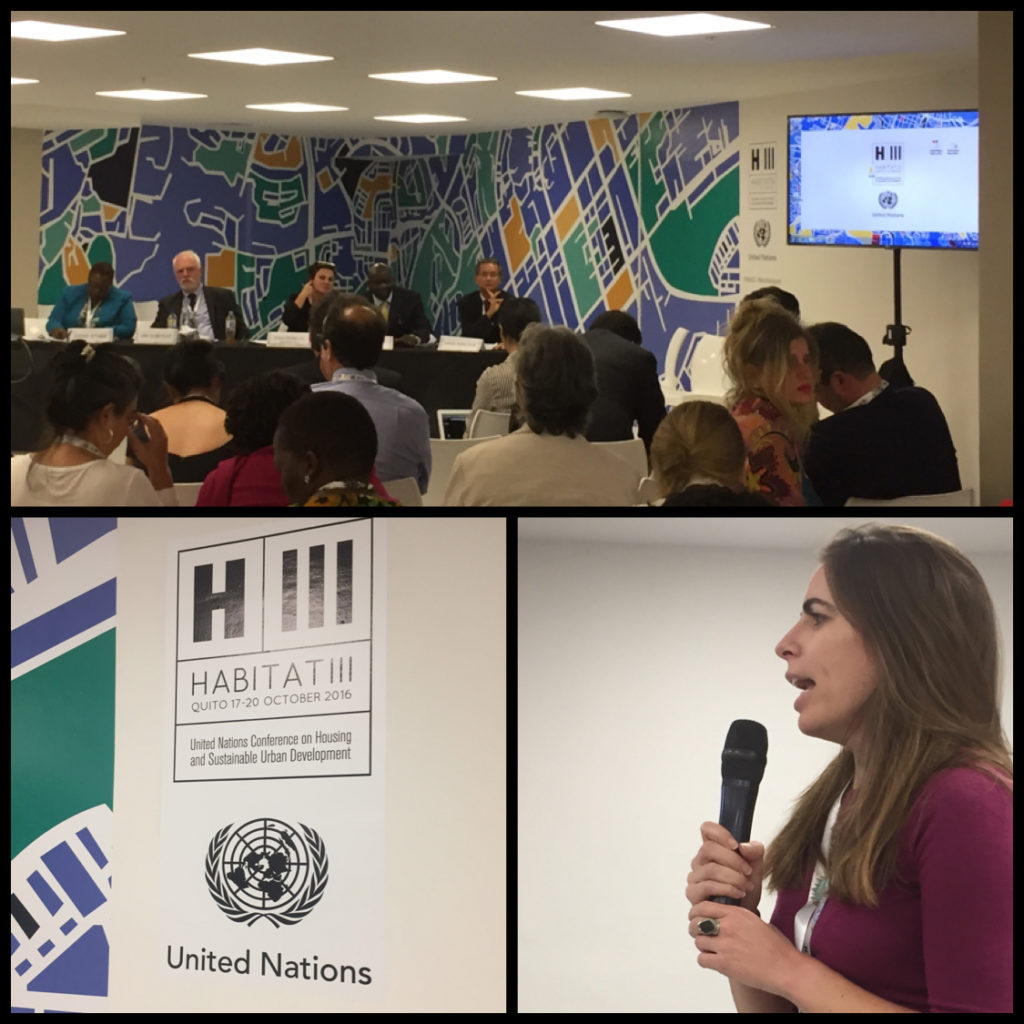Today was day three of HABITAT 3 in Quito, Ecuador. My boss asked me to attend four sessions that were not pitched as being specifically about women or gender or sexual violence (though there are a few of those across the conference, many of them involving UN Women in some way) with the hopes that I could help insert those topics into the conversation during the Q&A. What I found when I attended the sessions was what she and I suspected, without those items in the title or being pitched as the main topic, gender and women’s experiences and views barely came up at all. It reminded me of college where unless I took a course in the women’s studies division, the courses basically focused on men. As a history major, I’ll always remember my first women’s history class and my relief — “here’s where the women are!”
As an example of the four sessions today, one focused on the active transportation of bicycling and walking and how having fewer vehicles on the roads benefits cities in various ways. In theory, yes, I agree. Here is where I had issues. All of the presenter were men and they seemed to only be focused on men. The data they presented from their various cities did not include a gender break down. Their discussions about barriers to having more people walk or cycle did not include street harassment. Women’s unique experiences were not included AT ALL. What an oversight. You cannot expect to see more women walking and cycling until the issue of street harassment and safety are addressed and ended!
 The first three sessions I attended went over time or nearly went over time and so there either was no time for questions or only time for 2-3 questions. Thus, I did not get to insert gender during the Q&A … until the final session. This was a session on urban rules and governance. The moderator was a female judge from Malawi and panelists included an EU parliament member, Sierra Leone mayor and minister in Singapore. These three were all men. They talked about how to pass policies and laws, how to work across local, regional and national government, and more.
The first three sessions I attended went over time or nearly went over time and so there either was no time for questions or only time for 2-3 questions. Thus, I did not get to insert gender during the Q&A … until the final session. This was a session on urban rules and governance. The moderator was a female judge from Malawi and panelists included an EU parliament member, Sierra Leone mayor and minister in Singapore. These three were all men. They talked about how to pass policies and laws, how to work across local, regional and national government, and more.
The process for Q&A was to have a few people ask their questions and then the panelists could answer them in a grouping. I was the fourth person to ask a question in a group and the first woman. The three men went on and on about their own work and observations. I actually asked a question:
In most countries, women are under-represented in government and law, especially at the national level, so what is being done to ensure that women’s unique experiences, such as sexual harassment while in public spaces, is taken into account in the creation of and enforcement of policies and laws?
When the time came for the panel to respond, none of the men addressed my question. They only responded to the topics raised by the men. The moderator kindly tried to incorporate a response to me in her remarks, but even then it was pretty basic: yes, the views of women, children, persons with disabilities, etc should be included as we pass policies and laws.
Needless to say, I was really disappointed in the series of sessions and in the response (or, nonresponse) to my question. I am tired of men talking to men about men’s experiences when women are in the room, are trying to be active participants, and have unique viewpoints to offer!
